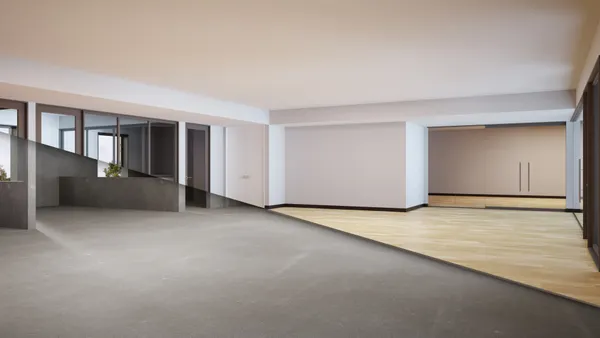Dive Brief:
- Waterfront Toronto announced Thursday it voted unanimously to proceed with the formal evaluation of Sidewalk Labs' proposed development in the city, although cautioned that it is "not a done deal."
- In an open letter, Waterfront Toronto board chair Stephen Diamond said the company had addressed concerns that had been previously raised. Sidewalk Labs agreed to reduce the size of the land for the initial project, to store all personal information in Canada, and to partner with real estate developers on development projects, rather than act as lead developer.
- "Let me be clear: this is not a done deal. There is still much work to do before a final decision," Diamond's letter reads. The formal evaluation of the Master Innovation and Development Plan (MIDP) and public consultation should begin soon, with the Waterfront Toronto board set for a final vote on the plan in March.
Dive Insight:
This preliminary approval does represent a step forward for the controversial Sidewalk Labs project, although Diamond and Sidewalk Labs CEO Dan Doctoroff were both careful to note that there is still a long way to go. But the agreement does include various pledges that seem to suggest further cooperation, including on advocating for transit funding and ensuring that Waterfront Toronto receives fair market value for its land when it is sold for the development.
In a statement to Smart Cities Dive, Doctoroff said they "are looking forward to the next round of public consultations, entering the evaluation process, and continuing to develop a plan to build the most innovative neighbourhood in the world."
Data management has been one of the most controversial issues surrounding this project, with Sidewalk Labs having previously proposed a "data trust" run by a third party. The review said the proposal still lacked "greater specificity" on how it would function, or how it would handle a potential data breach. That "data trust" proposal was nixed and control over personal data taken by Waterfront Toronto, something that those close to the project said is a good thing.
"I definitely think it will take the heat off," Alex Ryan, head of MaRS Solutions Lab and leader of a city initiative to safeguard citizen data from privacy breaches, told Smart Cities Dive. "I think people were suspicious of big tech coming in and setting the rules of the game, setting the data-sharing policy. Now that it's back in the hands of the public administrator, I think that's great news."
Opponents continue to raise concerns about the reach of Sidewalk Labs into residents’ personal lives, in light of a recent article by The Globe and Mail, which revealed a company document detailing how it wanted to levy its own property taxes, track and predict people’s movements and have a social credit system that rewards people electronically for good deeds.
Representatives of the #BlockSidewalk campaign released a statement saying that Sidewalk Labs is "not a trustworthy partner for Toronto or any other city." Thorben Wieditz, a member of the campaign, said in a statement that there is a "power asymmetry and lack of public accountability" that mean it should be canceled altogether.
But Ryan said that, while this is just the latest step on a long road to final approval, the fact that Waterfront Toronto and Sidewalk Labs have come together on many points of contention shows there is a good faith relationship between them.
"I think it shows that Sidewalk Labs has listened," Ryan said. "They've actually heard the feedback from Torontonians in public consultation documents. You can pretty much draw a straight line from that to the changes that have been announced today."
He drew a parallel with Amazon’s search for its second headquarters (HQ2), which ran into major backlash in New York City late last year, prompting the company to pull out of that city and focus its resources in Northern Virginia. Ryan said that relationships between cities and tech companies have traditionally been fraught, but this could mean a corner has been turned.
"It's either push them out of town or be pushed over," he said. "I think in this case, it's really interesting that the city of Toronto has really managed to hold their own and find that middle path. For their part, Sidewalk Labs came in and maybe was accused of not being the best at engaging and listening, and I think they've now shown a really meaningful attempt to do that."












